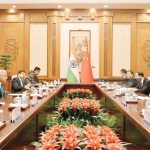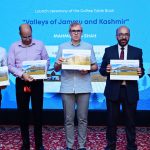The Sirah of Prophet Muhammad (SAW) is a comprehensive account of his life, teachings, and the events surrounding his mission as the final Prophet of Islam. It is not only a historical account but also a guide for Muslims on how to live a righteous and meaningful life. It continues to be a source of inspiration, guidance, and reflection for Muslims seeking to follow the path of Islam. The Sirah of the Prophet Muhammad (SAW) stands as a profound source of wisdom and guidance, offering invaluable lessons applicable to the complexities of the modern world. It is shaped by the ever-evolving challenges and opportunities that define the 21st century.
Below are some key aspects of the Prophetic Sirah that can be applied to resolve contemporary challenges and ultimately contribute to creating a more just, compassionate, and harmonious society.
Contextualizing the Sirah
In a rapidly changing world, Muslims must undertake a nuanced exploration of the life of Prophet Muhammad (SAW). This involves a diligent effort to place his actions and teachings within the context of the present time while remaining steadfast to the core tenets of Islam.
Promoting Compassion and Tolerance
The Prophetic example of kindness, compassion, and forgiveness in adversity offers a profound conflict resolution and peace-building model. These qualities can guide individuals and nations towards reconciliation and harmony in a world often marked by strife and animosity. Upholding the essence of the Prophetic message, Muslims have a solemn duty to champion compassion, tolerance, and justice. This encompasses a commitment to peace, fostering interfaith dialogue, and confronting extremism with unwavering resolve.
Pursuing Social Justice and Equality
The dedication of the Prophet (SAW) towards social justice, including the rights of women, the impoverished, and the marginalised, presents a comprehensive framework for addressing contemporary issues related to inequality and discrimination. His (SAW) teachings inspire efforts to create more equitable societies. Drawing inspiration from the Prophet’s legacy, Muslims are called to be fervent advocates for social justice and equality. This implies addressing contemporary issues such as poverty, discrimination, and gender equity with the same zeal that defined the Prophet’s actions.
Environmental Stewardship
The Prophet’s (SAW) teachings on environmental responsibility and resource conservation provide valuable guidance for addressing pressing modern challenges like climate change and environmental degradation. His (SAW) principles encourage the responsible use of resources and the preservation of the natural world. Acknowledging the pressing environmental challenges of the modern era, Muslims can glean valuable insights from the Prophet’s reverence for the natural world. Thus, they are encouraged to embrace responsible stewardship of the environment.
Embracing Education and Knowledge
Following the Prophet’s emphasis on the pursuit of knowledge, Muslims should actively engage in education and champion the quest for knowledge within society, as knowledge is a cornerstone of progress.
Upholding Interpersonal Ethics
The emphasis on self-improvement, both spiritually and morally, by the Prophet (SAW) remains relevant in the pursuit of personal growth and character development. His teachings inspire individuals to strive for continuous self-betterment. In daily life, Muslims should embody the Prophet’s exemplary ethical conduct. This includes practicing honesty, kindness, and empathy towards all individuals, irrespective of their backgrounds. The unwavering leadership qualities, honesty, and integrity of the Prophet (Pbuh) serve as a timeless beacon for leaders in the modern world. His example underscores the critical importance of ethical conduct in positions of authority, fostering trust and respect among followers.
Engaging in Humanitarian Aid
The Prophet’s remarkable ability to adapt to changing circumstances and innovate within Islamic principles inspires addressing modern challenges with creative solutions. This adaptive mindset is crucial in a rapidly evolving world. Continuing the tradition of the Prophet’s compassion for the less fortunate, Muslims are called upon to engage in humanitarian endeavours locally and globally to express their faith.
Fostering Intercommunity Relations
In an era marked by diversity and multiculturalism, the Prophet’s (SAW) interactions with individuals of different faiths provide a compelling model for interfaith dialogue. His emphasis on tolerance, respect, and open dialogue is particularly relevant in today’s globalised society, promoting harmony and understanding among diverse communities. The remarkable ability of the Prophet (SAW) to unite diverse communities around a common purpose offers a profound lesson in building cohesive societies. His example encourages efforts to foster unity and inclusivity in a time marked by division and polarization. Aligning with the Prophet’s approach to bridge-building and promoting understanding, Muslims should actively work to cultivate positive relationships with people of all faiths and backgrounds.
Communication and Diplomacy
The Prophet’s (SAW) exceptional diplomacy and negotiation skills can inform contemporary conflict resolution strategies and international relations. His methods promote dialogue, understanding, and peaceful coexistence among nations.
Resilience
The Prophetic model of unwavering resilience in the face of adversity serves as a source of encouragement for individuals and communities dealing with hardships and crises. His determination and perseverance offer hope and strength in challenging times.
Engaging in Dawah
As the Prophet (SAW) once did, Muslims should engage in constructive and respectful dialogue to convey the message of Islam to others, promoting mutual understanding and respect among diverse communities.
In essence, the modern requirements of the prophetic Sirah demand an adaptation of the Prophet’s teachings and actions to today’s complex and dynamic context. This adaptation emphasizes compassion, justice, ethical conduct, and responsible global engagement. As bearers of this legacy, Muslims are pivotal in addressing our contemporary world’s multifaceted challenges and opportunities while staying true to the timeless principles exemplified by the Prophet Muhammad (SAW).
The Sirah of the Prophet Muhammad (SAW) offers a timeless source of wisdom and guidance for addressing a wide range of modern challenges. By applying these lessons, society can progress towards a more just, compassionate, and harmonious world where ethical leadership, interfaith harmony, social justice, and environmental responsibility are upheld as fundamental principles.
(The author is a Researcher, Columnist, and Writer. He can be reached at [email protected])








